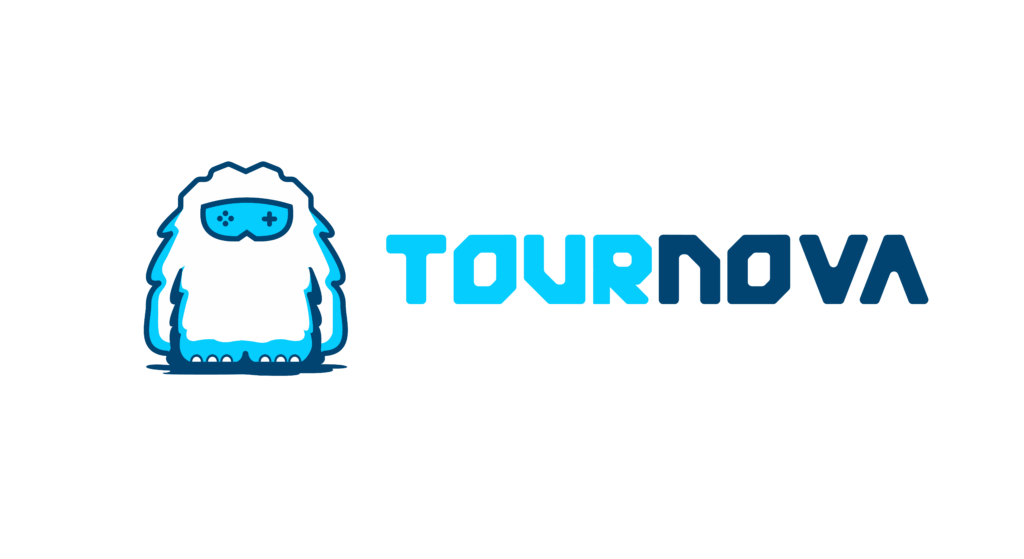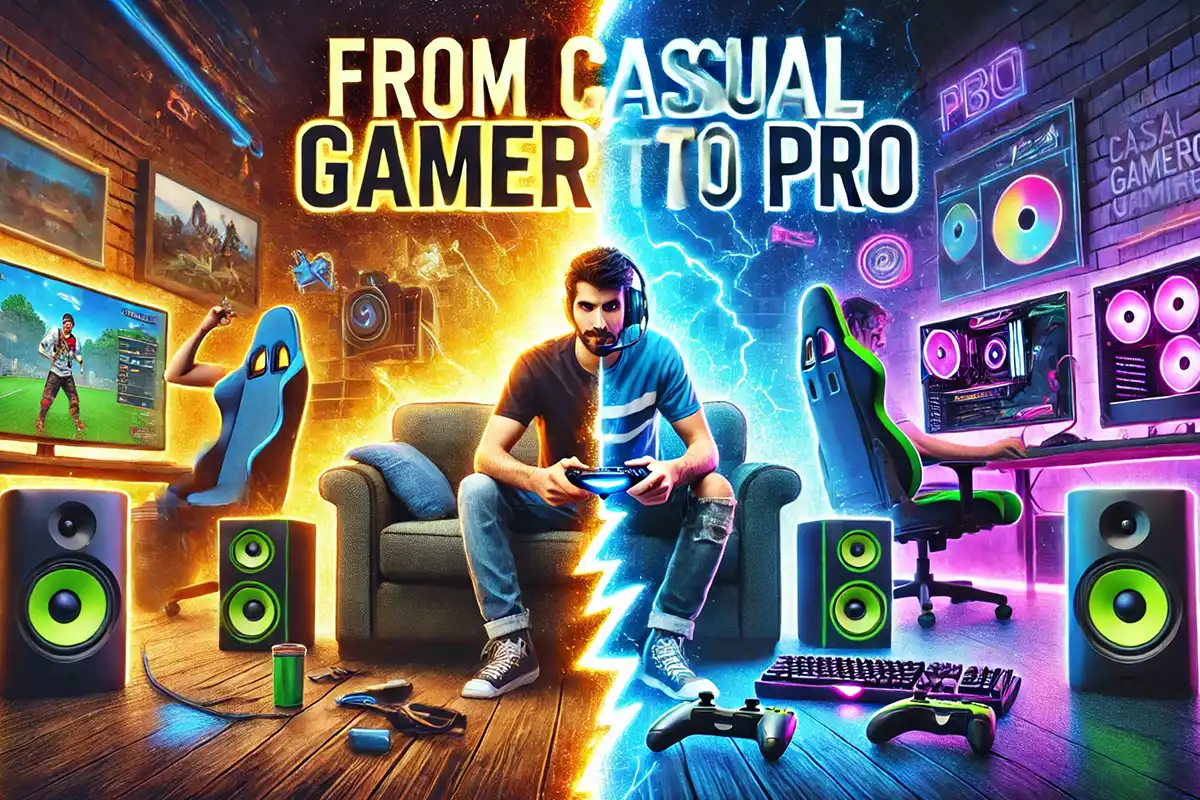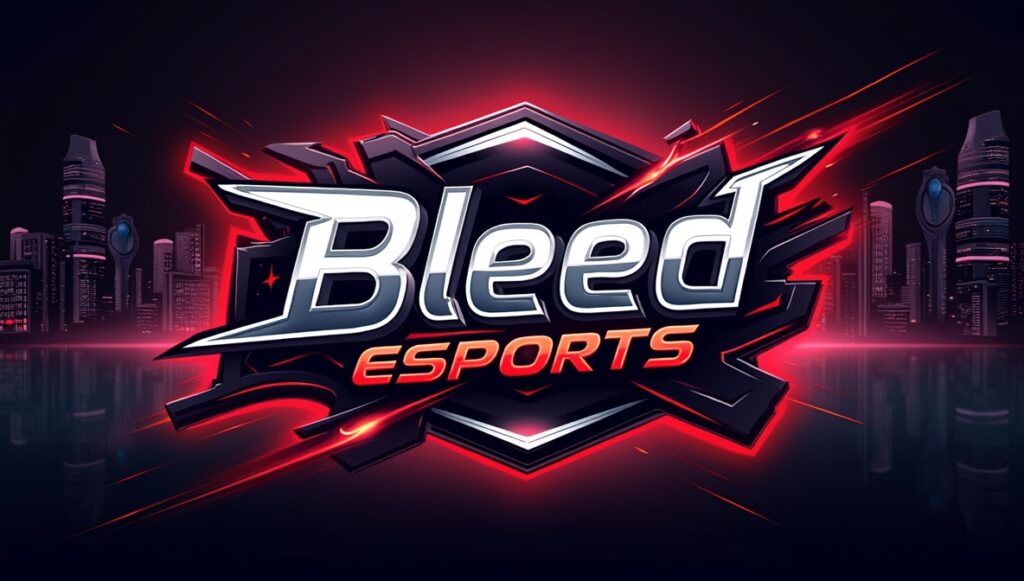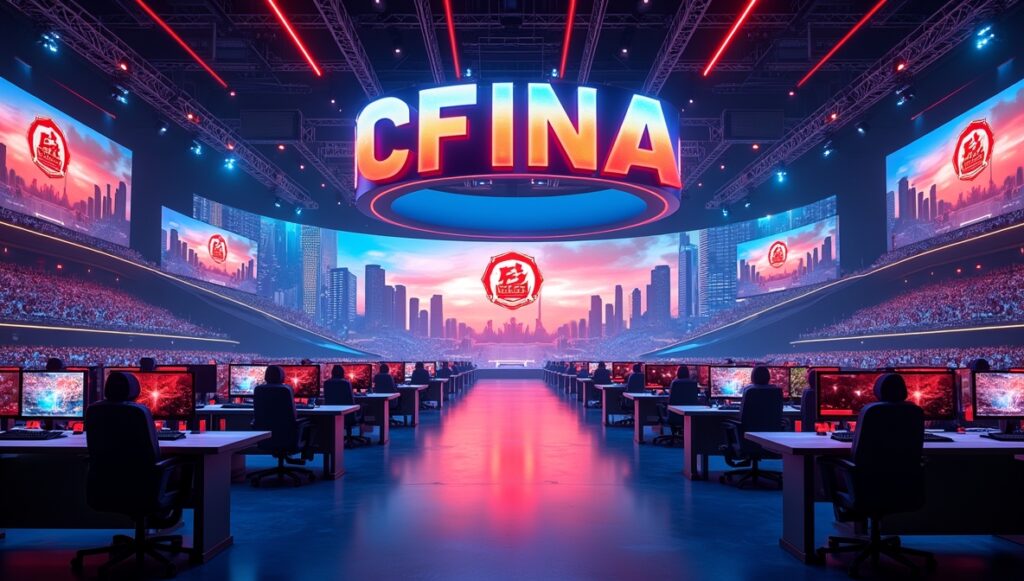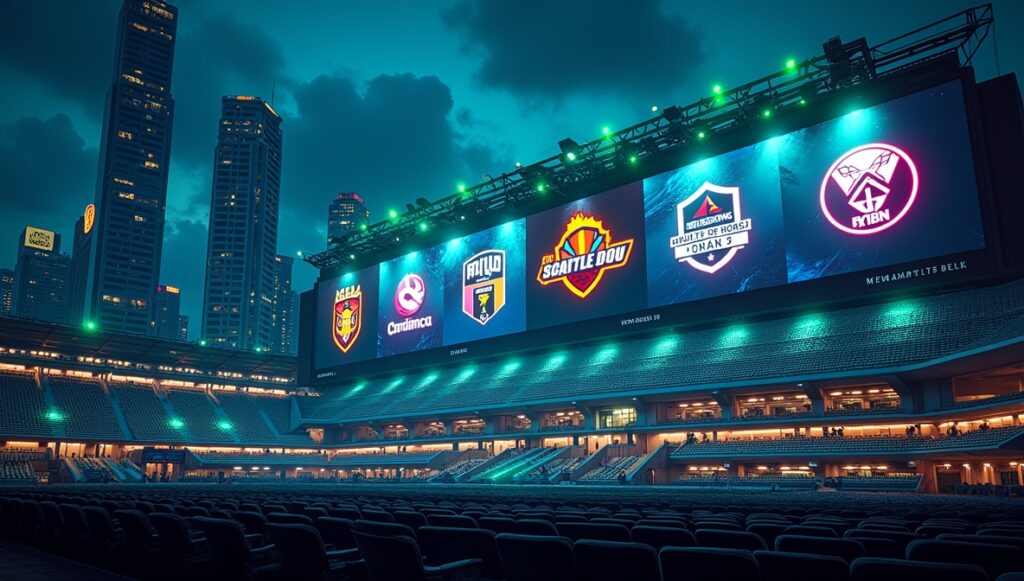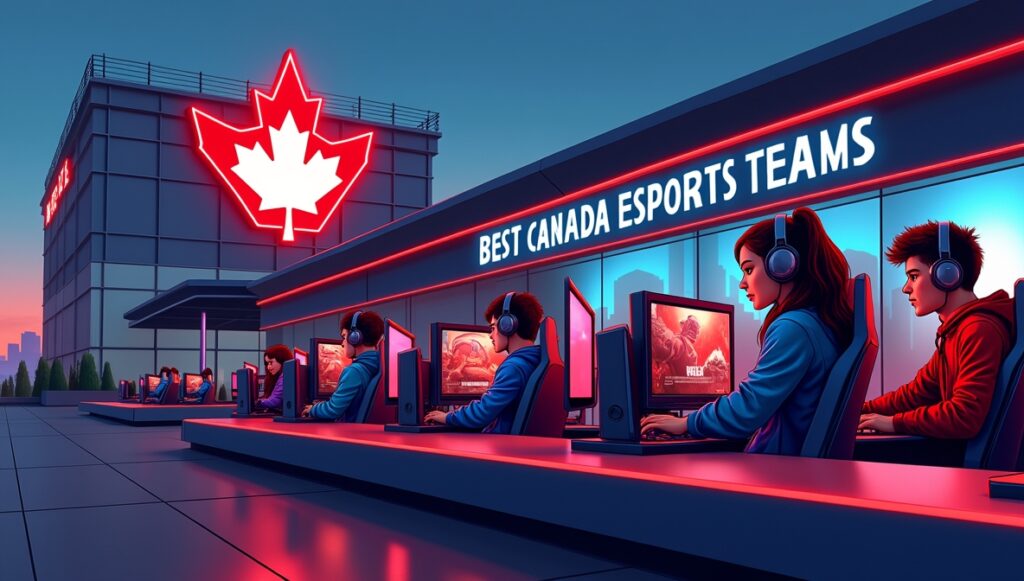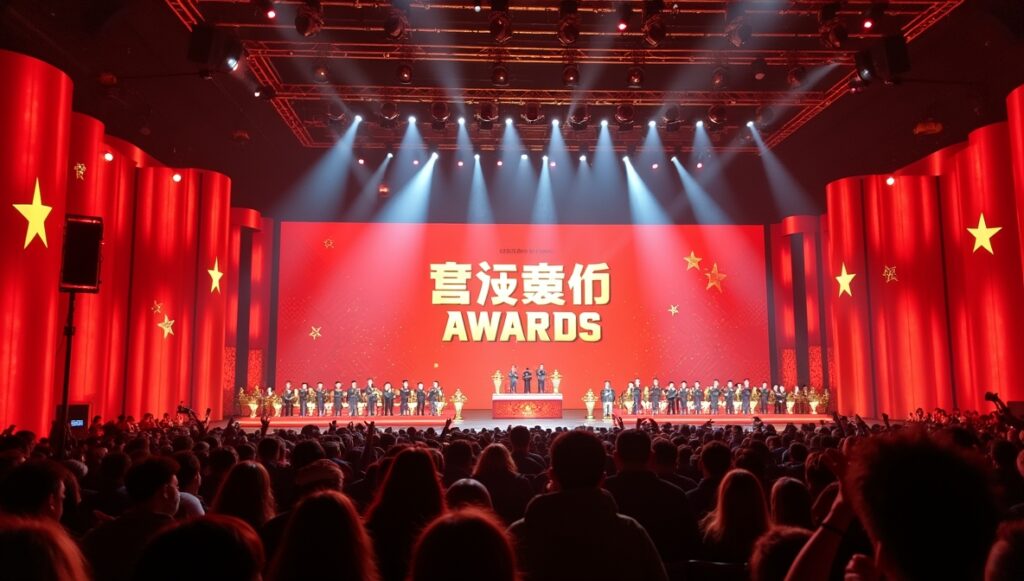Gaming has exploded into a full-fledged career path, but transforming from a casual gamer into a professional esports athlete isn’t as straightforward as it might seem. Many of us find ourselves stuck, playing our favorite games and wondering how others have managed to turn their passion into a paying profession. The leap from playing for fun to competing for fame and fortune can be daunting. The uncertainty of where to begin, what skills to hone, and how to break into the industry often leaves aspiring gamers feeling overwhelmed.
Today, we’ll unravel this mystery of how to become a professional gamer and get paid and guide you through the steps needed to make this dream a reality, from choosing the right game to creating a professional presence. Let’s dive in!
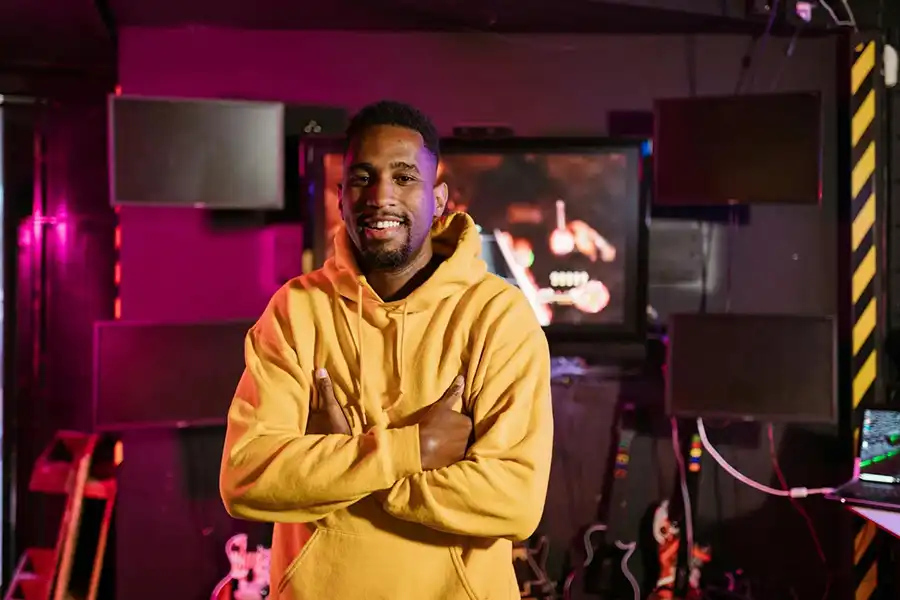
How to Become a Professional Gamer and Get Paid
How Casual Gaming Differs from Pro Esports
Casual gaming and professional esports may both involve playing the same games, but they are worlds apart in terms of mindset and commitment. When we casually game, it’s often a means to unwind or escape into different worlds—like spending Saturday nights with friends in a thrilling round of Fortnite or exploring the post-apocalyptic terrain in Fallout. However, professional esports is akin to being an athlete. It demands intense dedication, hours of practice, and a robust mental framework to handle the pressures of competition. Success hinges on our ability to consistently perform at the highest level, under the scrutiny of thousands, sometimes millions, of viewers.
Essential Skills Needed to Become a Pro Gamer
To ascend the ranks of esports, key skills are paramount. Mastery of game mechanics, quick reflexes, and strategic thinking form the foundation, while teamwork and communication propel you forward. Coupled with mental resilience, these skills distinguish casual players from the pros.
Step-by-Step Guide to Launch Your Esports Career
Choosing the Right Game for Your Esports Journey
Selecting the right game sets the foundation for your esports career, and it begins with introspection about your interests and strengths. Think about the types of games you genuinely enjoy and excel at—whether strategic titles like League of Legends that demand deep understanding of tactics and teamwork, or fast-paced environments seen in first-person shooters like Counter-Strike: Global Offensive, where split-second decisions and precision reign supreme.
Once you identify your preferred genre and game, focus intensively on it; that would be the first step on how to become a professional gamer and get paid. Specialization enables you to delve deeply into the game’s mechanics and strategies, making you a competitive force. For example, mastering the intricate skills and role dynamics in DotA 2 requires a sustained focus that broadens your understanding beyond surface-level play. This dedication prevents the dispersion of efforts across multiple games, which can dilute your progress and expertise.
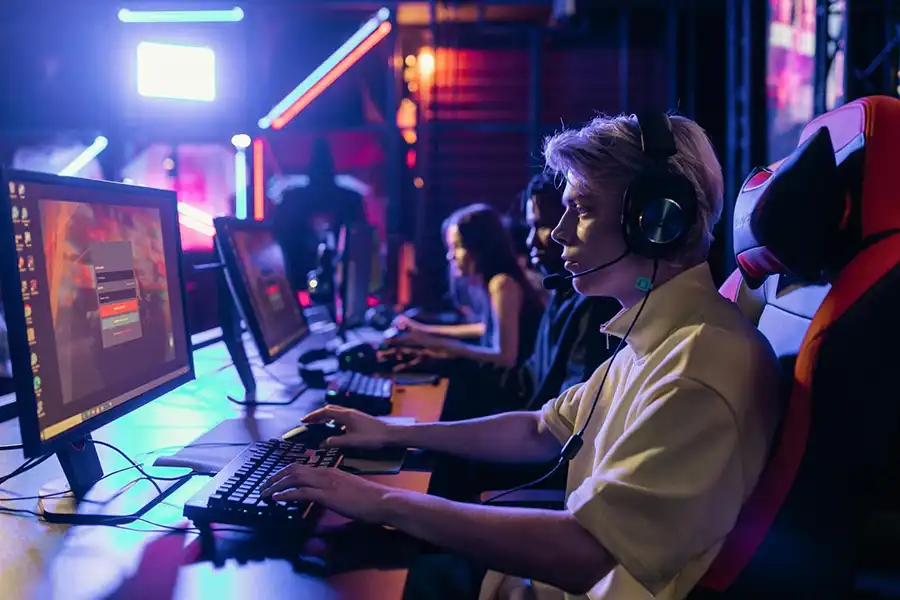
Building the Perfect Gaming Setup, Gear You Need
Your gaming setup is more than just a collection of hardware; it’s the backbone of your performance. First, consider investing in a high-performance PC or console optimized for your chosen game. For PC gamers, a setup with a powerful graphics card and fast processor ensures smooth gameplay and prevents technical issues from disrupting concentration during critical moments.
A responsive gaming mouse and mechanical keyboard are essential—these peripherals provide the precision and tactile feedback necessary for executing complex maneuvers swiftly. Moreover, a high-refresh-rate monitor enhances visual clarity, keeping you on par with your in-game surroundings and reducing motion blur during fast actions.
Equally important is a reliable, high-speed internet connection. In esports, where every fraction of a second counts, stable connections minimize latency issues and lag, ensuring that your reactions in-game translate accurately and without delay. This can make the difference between a win and a loss in a tight match.
Read More: Esports vs online gaming
Mastering Gameplay, Effective Practice Techniques
How to become a professional gamer and get paid? By Mastering gameplay; which is about focusing on quality practice that builds on incremental improvements rather than sheer volume. Begin with an honest assessment of your playstyle by analyzing professional gameplay videos and your own recorded matches. This helps in identifying areas of improvement—be it aiming precision, strategic positioning, or team communication.
Setting specific, measurable goals is crucial. Instead of vaguely aiming to “get better,” target precise aspects such as increasing your headshot accuracy to a certain percentage or improving reaction times. These goals give you clear benchmarks for tracking progress.
Consistency is another pillar of effective practice. Establish a regular schedule that balances dedicated solo practice with team play, ensuring you develop personal skills alongside fostering team synergy. This routine helps in cultivating discipline, maintaining peak performance levels, and seamlessly integrating new strategies into your repertoire over time.
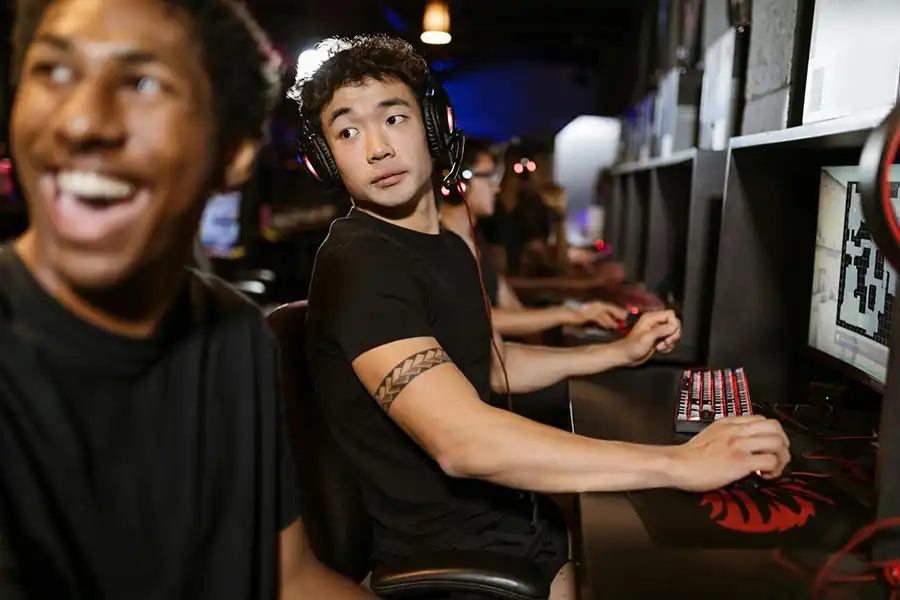
Getting Involved in the Esports Community
Engaging with the wider esports community is a crucial step in advancing your career in gaming. This involvement helps you stay updated on industry trends, learn from others, and establish a support network. Start by participating in online forums such as Reddit’s r/esports, where you can exchange ideas, ask questions, and get feedback from other enthusiasts and professionals.
Following industry leaders and organizations on social media platforms like Twitter, Twitch, and YouTube immerses you in the evolving dialogues within the community. These platforms are not only places for news but also for observing high-level play and learning new strategies.
Attending events, either in-person or virtually, is another excellent way to engage with the community. These events range from local tournaments to major international competitions. They offer opportunities to network, as you can meet other players, coaches, and industry professionals who might share insights and tips, and potentially open paths to mentorship and collaboration.
Competing in Tournaments, How to Enter and Succeed
Playing in tournaments is one of the critical steps on how to become a professional gamer and get paid; if you are striving to have your future in esports. To begin with, one should try playing in online tournaments so they gain experience on how to do it. There is a list of competitions on social platforms: Battlefy, Challonge, and Tournova which can increase the overall level of experience.
The higher level of competition means that much preparation needs to be done to create that edge to start with before even getting into a tournament. This is a process whereby you and your entire team go for practice sessions to aid in strategy development and ensure all the members understand what they are supposed to do. It is important to learn more about the peculiarities of the tournament in the sense that a team might be disqualified for several violations that were committed unconsciously.
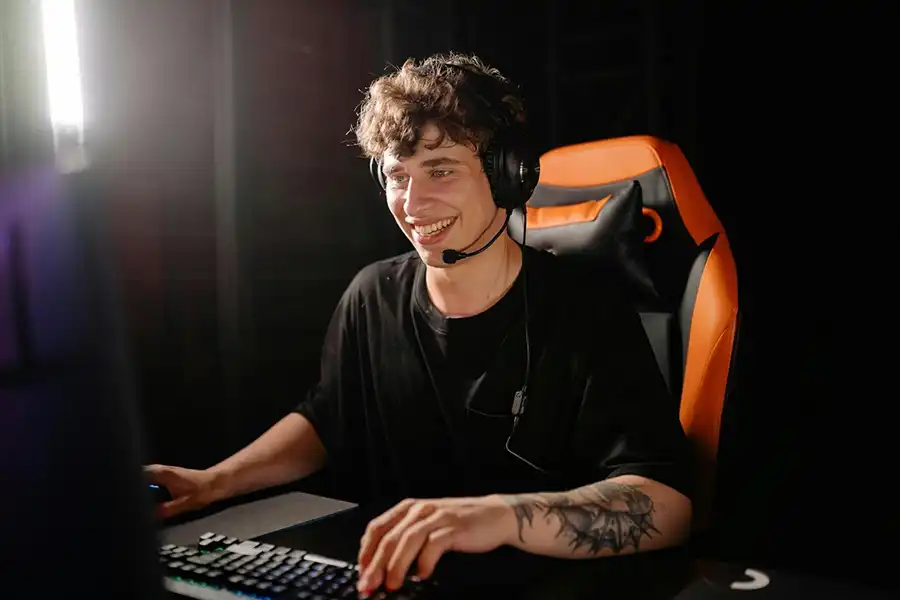
Control of anxiety and being cool during the games is as important as any other factor. Take breaks to practice for stress and anxiety control, which is very important when one aims at performing his/her best when competing for the top honors.
Joining or Forming a Team, Tips for Success
Teamplay is crucial in many games that are played through esports since people who work in teams have a better chance of success in the games. When seeking a team or starting one, one has to use discord channels, and social media groups related to the game in question. These platforms create areas where you can search for players dedicated and aspiring to achieve similar goals.
Don’t choose your teammates based on how well they know the rules, as well as their operational skills, but how they are willing to communicate and how motivated they are. If the people in a team are focused and have a good rapport, they can certainly handle the blind spots and enhance the specific talents of each other in the process involved.
To promote the welfare of the team, the employees’ objectives must be aligned with their created goals. It needs formality, clear lines of communication, and feedback to retain concentration and gradually enhance teamwork. Bear in mind that the creation of a positive team atmosphere is an essential part of contributing to you and your team’s objectives.
Balancing Health and Gaming, Staying Fit for Success
What is the next step on how to become a professional gamer and get paid? Maintaining your health is crucial for sustained performance in esports. Sitting for long periods in front of a screen can take a toll on your body, so it’s important to implement regular breaks during gaming sessions. The Pomodoro Technique, which involves working or playing in focused intervals followed by short breaks, can help reduce eye strain and promote physical activity.
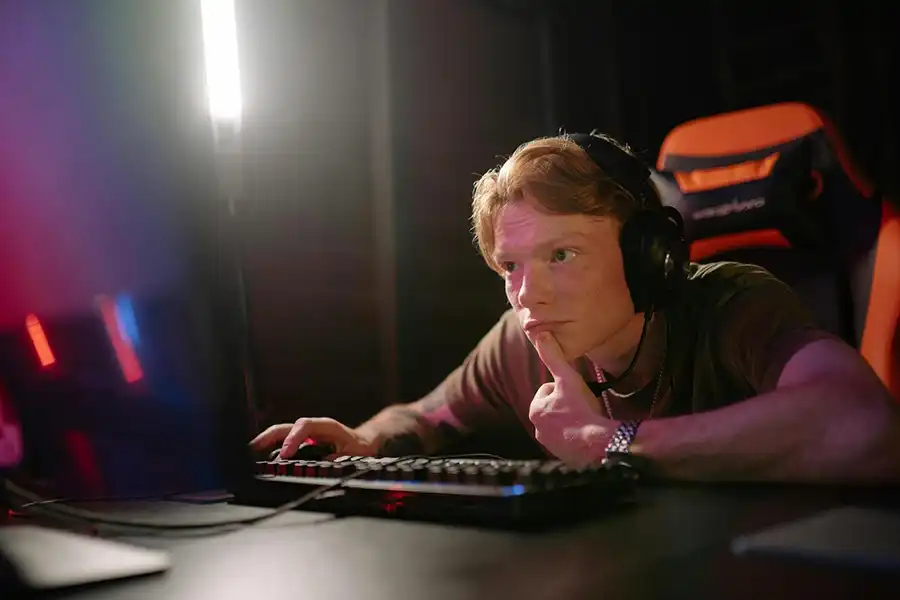
Incorporating regular exercise into your routine counteracts the sedentary lifestyle common among gamers. Activities like jogging, yoga, or strength training improve cardiovascular health, flexibility, and muscle tone, all of which can enhance your gaming endurance and reflexes.
A balanced diet rich in nutrients supports both physical and cognitive functions. Consuming meals with the right balance of carbohydrates, proteins, and fats fuels your brain and maintains energy levels. Staying hydrated is also critical for focus and reaction times.
Managing stress is another key component. Mindfulness practices such as meditation or deep breathing exercises can help manage the mental strain of competitive gaming. Additionally, engaging in hobbies unrelated to gaming provides a mental break and prevents burnout, helping you maintain a long and healthy esports career.
Building Your Online Presence, Branding and Streaming
Creating a strong online presence is vital for establishing your identity in the esports arena. Begin by developing a personal brand that reflects your gaming persona, skills, and unique qualities. Platforms like Twitch and YouTube are excellent venues for streaming your gameplay, sharing tutorials, and providing commentary on strategies or game updates.
Engage with your audience authentically and consistently. Responding to comments, hosting Q&A sessions, and participating in community events help build a loyal follower base. The more you interact, the more invested your audience becomes in your growth and success.
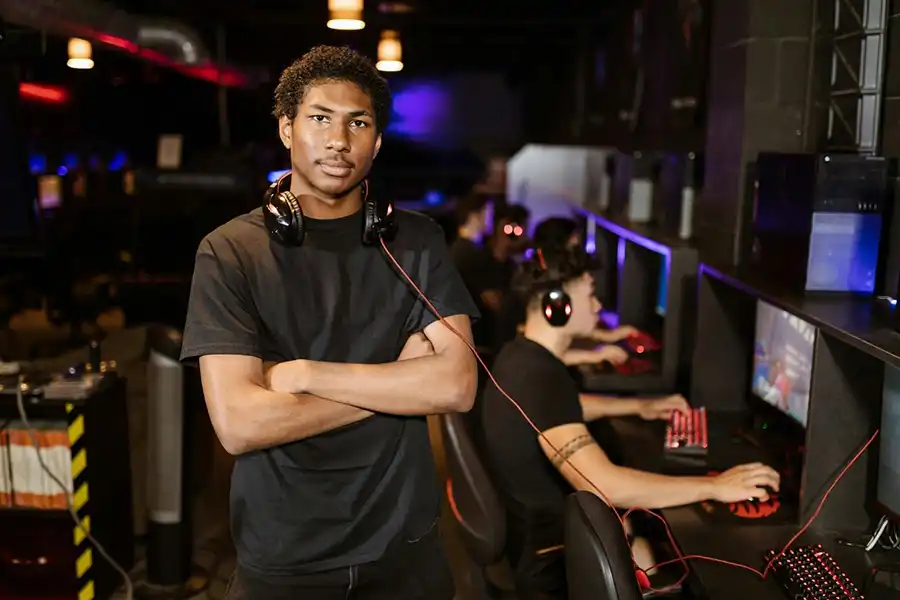
As your online presence grows, you may attract opportunities for sponsorships and partnerships. These can provide financial support, equipment, and exposure, further enhancing your career. Ensure that your branding is consistent across all platforms to maximize your reach and professional appearance.
Read More: The Rise and Growth of Esports
Networking and Mentorship, Learning from the Pros
Networking and mentorship are invaluable tools for advancing your esports career regarding how to become a professional gamer and get paid. Connecting with seasoned players, coaches, and industry professionals through social media, forums, and events can open doors to new learning opportunities and collaborations.
Joining mentorship programs tailored to esports can provide targeted guidance and strategies that are otherwise hard to come by. Mentors can offer insights into game meta, professional challenges, and career growth strategies based on their own experiences.
Building these relationships not only helps improve your game but also provides emotional and professional support as you navigate the competitive landscape. Whether it’s advice on gameplay, handling pressure, or managing your career trajectory, learning from those who have already succeeded can significantly accelerate your progress and success in esports.
Tournova: The Right Path to Gaming Professionalism:
Tournova is poised to revolutionize the esports experience, catering to both casual enthusiasts and professional competitors. By leveraging the familiar platforms of Telegram and Discord, Tournova offers an intuitive interface for managing and participating in tournaments. Its innovative token economy rewards players with tokens that can be spent on enhancing their gaming journey, such as entering special tournaments and purchasing digital items. Designed for ease of use and wide accessibility, Tournova seamlessly integrates with games, providing developers with opportunities to engage large communities. This dual-platform strategy, paired with Web3 capabilities, ensures a transparent and secure environment for transactions, making Tournova a leader in merging technology with the esports ecosystem.
Conclusion
What is the ultimate advice on how to become a professional gamer and get paid? Stepping into esports requires a blend of passion and professionalism, bridging the gap from hobby to career. Follow these steps, and transform your gaming dreams into reality. The journey is as rewarding as the destination—now’s the time to get started!
Starting a professional esports career requires dedication, strategic planning, and adaptability. As you implement the steps outlined in this guide—from mastering your chosen game to building a robust online presence and forming connections within the industry—you lay the groundwork for transitioning from hobbyist to professional. The journey is challenging but immensely rewarding, promising both personal fulfillment and potential financial success. Now is the time to harness your passion and transform it into a thriving esports career, making your mark in the dynamic and rapidly expanding world of competitive gaming.
FAQ
How important is age when starting a professional gaming career?
While younger players might adapt to gaming faster due to flexibility and time, age is less of a barrier than commitment and skill. Many successful esports professionals began their careers later, proving that passion and dedication trump age.
What mental strategies can help manage competitive stress?
Managing stress is crucial. Techniques such as visualization, which involves picturing success scenarios, and breathing exercises can help maintain calm and focus during competitions. Regular practice of these strategies enhances performance by keeping anxiety at bay.
How can I ensure longevity in my esports career?
Longevity requires a balance of skill maintenance, physical health, and continuous learning. Staying updated on game changes and evolving your gameplay style helps remain competitive. Moreover, diversifying skills, like learning to coach or commentate, can extend your esports involvement beyond playing.
